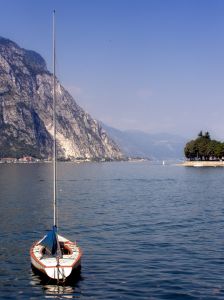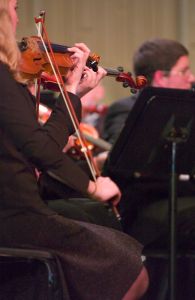What do mediation, dog training, football, sailing and a symphony orchestra have in common?
While this might seem like a very strange question at first glance, it is possible, that by learning more about mediation, particularly transformative mediation, we will be able to identify similarities and connections.

Ok there are no dogs in the mediation room, nor is there an actual sailboat or professional football team, nor is there a symphonic orchestra ready to serenade us, (although anything is possible) there are however similarities…..all five are dependent in some way on relationships.
Often, when I mention the word ‘relationship’ many people back away, mostly because this word has a lot of baggage attached to it. Bad or broken relationships between past partners, lovers and spouses bring back bad memories. Here in this blog, ‘relationship’ simply refers to an affiliation, network, alliance or exchange. This relationship may be dependent or independent. Relationships can easily occur between people, nature, objects, pets and the relationships can also be direct or indirect. (more on this concept of direct and indirect relationships later)
If you have a problem with your family dog, (he barks too much, won’t sit or stay for you or always sleeps on your favorite chair), you have options. You could give up believing the dog will never learn or you could seek assistance from a professional dog trainer.
Those people who choose to use a dog trainer soon come to realize that the trainers focus is not solely to train the dog. The trainer focusses on teaching you and the dog to begin understanding each other and to develop a relationship so that your dog would want to listen to you and respond to your commands. Once this relationship is developed, the problems disappear.

Sailing a boat is also about a relationship. This relationship is different since the relationship is between the sailor, the boat and the sea. If you have a problem with your boat (you keep flipping it over again and again), it eventually becomes clear that you don’t fully understand how the sails work with the wind and waves. You have the option of dropping your sails, turning on the engine and motor around the lake yet most sailors wouldn’t consider this to be sailing. Alternatively you could find someone who would help you to gain a better understanding of how the sails react to the wind and waves. Once you figure this out, you gain a greater understanding cannot you can all work together, allowing you to keep your boat upright and sailing in the direction you want to go.
On a boat, once you realize how moving your sails in one direction will move your boat in a particular direction either into the wind or away from it, your ‘relationship’ with your boat and your respect for her, the wind and water will greatly improve making you a much better (and drier) sailor, which, after all, is what you wanted in the first place. Had you focused solely on the one problem (flipping the boat) you would not be looking at the bigger picture of how necessary it is for all elements to work together in order to attain success.

I think my football example is the easiest. One can read books about moving the ball downfield and practice for years and years perfecting your skill. The problems begin when there are conflicts between the players or there is a new player who isn’t in-sinc with the rest of the team either on or off the field. The relationships between the trainer, captain and teammates is imperative. Working together, in-sinc, knowing at all times where your teammates are as well as their capabilities will win games. Being able to anticipate your teammate’s next move is what the game is all about. How many times have we seen a strong football player transfer to another team because of interpersonal conflicts? Too many. These events could have been resolved had the players worked on working together instead of focusing on the interpersonal problems. Had a mediator been involved, the team might not have lost a very valuable player.

In a symphonic orchestra, each musician has been practicing for many years and is expert with their instrument. When the musicians come together there are sometimes problems between the musicians and, it becomes the conductors job to get the music in-sinc and for the musicians to play in harmony. If just one musician is off beat or out of tune then the entire musical piece is ‘off’. The conductor has options. He can replace the ‘problem’ musician as there are always many people waiting for the opportunity to play in an orchestra or The conductor can work with the musicians, not to teach them how to play, but to get them to play collaboratively with the other musicians. The conductor works with the entire musical piece striving for harmony while assisting the musicians build a musical relationship amongst the entire orchestra.
In mediation, people often bring a specific conflict to the table and ask the mediator to fix it for them. Most mediators will point out to the parties that it is up to them to find the resolution. If they wanted someone else to fix their problems, there are other very effective venues for that, namely courts and tribunals where a judge or adjudicator will decide who is right and who is wrong.
Inherent in the mediation process is; when there is an ongoing relationship between the parties, then the relationship needs working on as well, in order to solve the problem. In transformative mediation, the presented conflict is viewed as only part of the problem. The relationship is focused on so that the parties are able to better understand each other and find ways to work together in the future in a much more collaborative way.
It’s true that not all conflicting parties have direct relationships as in workplace conflicts between two or more co-workers. Some conflicting parties (civil and commercial as examples) might never work together again…in these cases they might have indirect relationships, through colleagues, friends etc. Where reputations remain very important. If the conflict is dealt with in a courtroom and disparaging comments are made about the parties and each side is focused solely on winning then any remaining respect between the parties disintegrates and feelings of animosity take over. Too often, both parties end up losing by way of badmouthing the other post trial.
The morale here is the vast majority of conflicts or problems have deep rooted issues that stem from the interpersonal relationships between the parties in conflict. In order to have long lasting resolution, the parties need to work on these issues and not simply the presenting problem.
Transformational Mediation, as mentioned, focusses on the relationship. By ‘fixing’ the relationship, the presenting conflict can easily be resolved and the parties leave the mediation respecting the other party…a very different resolution when compared to courts and tribunals.
